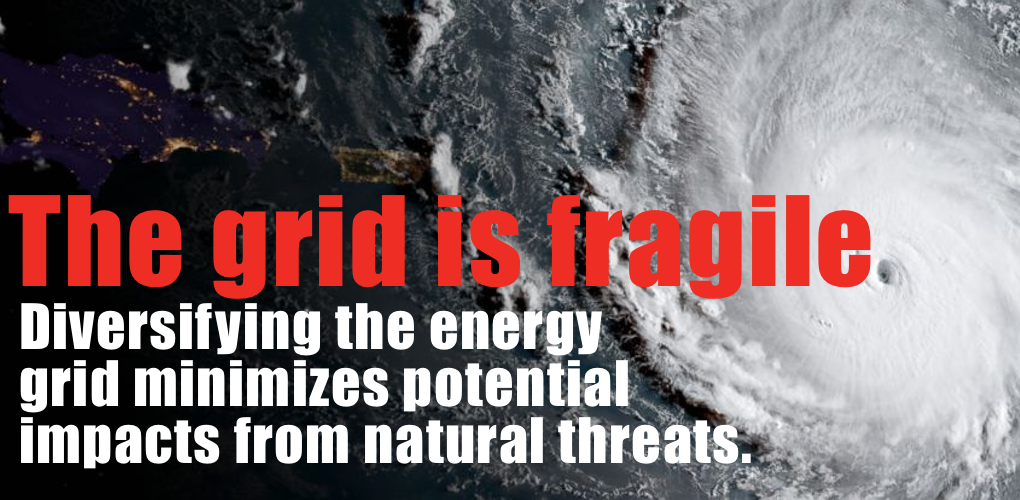
Weathering the Storms
September 12, 2017
Nature has rudely interrupted a static Beltway debate about grid reliability and the need for baseload power.
The series of powerful storms swept through sprawling cities and Caribbean villages, annihilating every structure in their path. For hundreds of thousands of people impoverished by nature’s fury is now added the lack of electricity. For at least days and possibly weeks until power is restored, they will know what life is like for the world’s 1.3 billion “energy poor” for whom reliable electricity remains an impossible luxury.
For many everyday Americans, nature’s fury brings into sharp focus the practical question of what can be done to secure grid resilience. Some 6 million households in Florida alone are without power, said the state’s disaster agency, and restoration must be measured “in weeks, not days.” That’s a timely reminder of the grid’s fragility and the importance of using all energy sources.
Americans seem to agree. Eighty-five percent believe the U.S. should be doing more to diversify its energy grid to increase the resilience of our domestic energy market, and minimize potential impacts from disasters such as the recent storms, according to a poll conducted over the weekend by Morning Consult for NMA.
Those questioning the validity of “disruptive events” as a justification for baseload power now know what such events look like. Pipelines were destroyed, power plants shut down and outages that will last for weeks. The only reason power outages were not more disruptive is because massive evacuations left fewer households to overload the grid.
The point is, destructive events aren’t unicorns. Yesterday’s polar vortex is today’s Harvey and Irma. To weather them, we’ll need the pillars of baseload power, including coal. A recent report for the American Council for Clean Coal Electricity points out that coal plants have on average 73-day supply of fuel on site. No need for pipelines that are highly vulnerable to supply disruptions “especially when low-probability, high-impacts events occur,” said the ACCCE report.
In the age of Instagram and self-driving EVs, we still can’t avoid the merciless power of nature. We can only minimize the risks.
- On September 12, 2017
